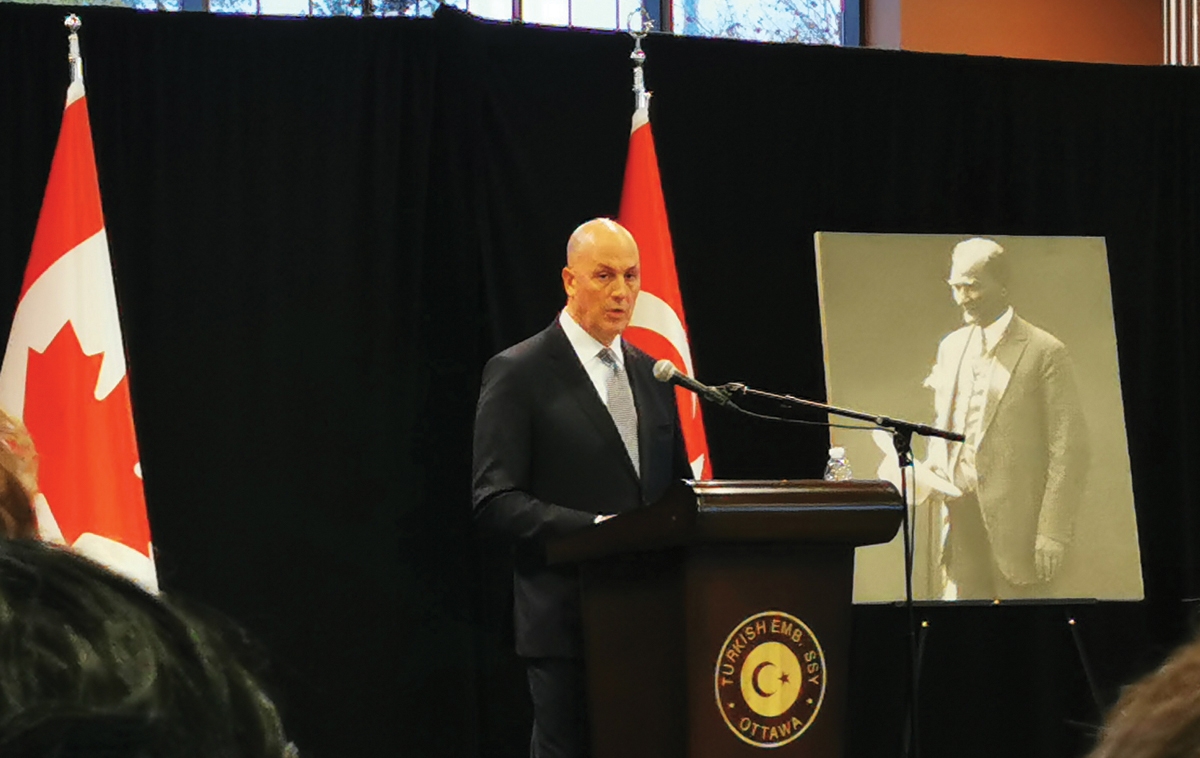
Andrea Horwath says LCBO bonuses show a culture of entitlement
By: Dina Zeldin
OLM: Ex-LCBO employee Larry Paterson discovered through Freedom of Information requests that the LCBO dished out over 6 million dollars in bonuses to employees in 2008 (which had increased from just over 400 thousand in 1997). Can you comment on why these bonuses were awarded? What was the reason for such a dramatic increase in their size?
HORWATH: This is a problem that is endemic to this Liberal government. You just need to look at the scandal in eHealth and the things that we're uncovering all kinds of agencies, boards and commissions, including even the hospital sector where we see all kinds of outrageous salaries and bonuses and these kinds of inappropriate payments.
I don't think it's just the LCBO. I think it's actually a culture of entitlement that's been fostered by this Liberal government that's spread through all kinds of organizations and agencies. So the issue is more: how do we control that? How we do make sure that that culture, if you will, is nixed? We need get to an understanding that these agencies are serving a greater purpose: to provide value for the tiacipzTer, the people of the province.
OLM: Would you say that the LCBO is asset or an inconvenience?
Horwath: My opinion is pretty clear that the LCBO is an asset to the province that will continue to provide a revenue stream from here on in, until eternity from my perspective.
I’m pretty sure we make well over a billion dollars in revenue every year from the LCBO, and that’s not just for this year, but for next year and for the year after that. As my son has children, and his children have children, it's a revenue stream for the government.
Although in tough times like these, people like the current Liberals and the Tories before them, look at these agencies as a way to get a quick cash infusion. Ultimately the long-term value of these kinds of organizations or agencies has to be the primary focus. It's the fact that they bring in a secure revenue stream over time.
You know, a quick fix of a couple of billion dollars, even ten billion dollars, is fine when you're looking at only the short term and the fact that we're in tough economic times right now But, I think the value over time is much more important. We shouldn't sell off these publicly-held assets, these cash generators that are really publicly-owned, for the short term, because the public should be able to benefit from them over the long term.
OLM: In 2005 the Beverage Alcohol System Review Panel found that the LCBO system 'falls considerably short of getting the maximum return for the taxpayer.' Could you comment on that?
HORWATH: There's no doubt that any organization can always find better ways of maximizing the value that they bring but this particular study indicates that there is greater value that can be gained. That should be the call to the organization to pull up its socks and to ensure that better value is produced.
I certainly don't believe that it's a matter of saying: they said this so we throw the baby out with the bath water. I really believe that if the agency has an opportunity to provide a greater value, than we should be looking at how to make that happen, as opposed to simply saying, 'well it's got some problems so let's just wash our hands of it'.
If improvements can be made then they certainly should be made so that our benefit as taxpayers could be maximized. But I don't believe that includes the privatization of the LCBO.
OLM: The LCBO has built large box stores all over the province and invested funds in creating the glossy Food and Wine magazine. Do you think that these are good uses of our tax dollars?
HORWATH: There's no doubt that huge stores are being developed by the LCBO. Again, I think that the key has to be not so much the idea that by selling this asset off we're going to cut off these exorbitant and some would say luxurious expenses. In fact, I think what we put ourselves up for if we sell off the LCBO is something that looks like a lot of reduced access and a lot of reduced product availability for all kinds of different communities. So, with every suggestion that this should be done to fix this problem we have to then see what the impact would be on other parts of the business.
I believe if we say, 'well, these big stores are there and they're just a big white elephant so we should sell the LCBO,' we'd be making a mistake. There are all kinds of communities where if you sell the LCBO and make it a private venture, the kind of availability of product would be severely reduced, especially in smaller markets. I think that's one of the things that the LCBO in the current form is able to provide. It's able to provide a broad choice of products to even smaller markets and I think that is something of value.
OLM: What impact does the LCBO monopoly have on provincial wineries and breweries? These retailers must provide the LCBO detailed data about their location and sales, do you think that this is just?
HORWATH: The issue is broader than that. This issue is, does the LCBO do as much as it actually can to promote our local, meaning Ontario-based, wineries and wine products?
I have to say that that's something that we've been very critical of over the years and for which we remain very critical. -I mean the LCBO really has the opportunity to provide a lot more support, a lot more visibility and a lot more prominence to our Ontario wines and our Ontario grape growers. This is an ongoing issue that I think the LCBO needs to look at. I think that there's a lot of opportunity that they're not taking advantage of to help us with our local domestic sales of our own home-grown products.
OLM: What impact would it have on taxpayers if alcohol sales were privatized, and the alcohol brought in was taxed like it is in BC?
HORWATH: The amount of revenue and the opportunities that the LCBO provides in some of the areas that we've talked about (even the areas where it's under-performing) I think that there's value there. I also think that the ongoing concern about accessibility in terms of smaller markets and access to a broader variety of products would be an issue. Also, making sure sales are being made within the legal framework of this province is something that we talk about a lot. The extent to which we know that public employees of the LCBO are charged with the responsibility of upholding the legislation around the sale of alcohol to minors, to people who are already intoxicated and that kind of thing. It seems to me that there is a sort of public accountability that comes with this current structure that would be lost with a privatized model.
OLM: The LCBO has allegedly struck sweetheart deals with suppliers like Bacardi. Also, foreign wineries claim it is difficult to fit within the LCBO's ‘requirements' and get their products on the shelves in Ontario. Could you comment? Do you think that this is fair?
HORWATH: Do we throw the baby out with the bath water, or do we identify the problems (or the potential problems depending on what side of the coin you're looking at) and try to address them specifically?
At this point, I would say, you know, let's get at that issue and let's spend some time on it, try to address the problems and figure out how to make sure that these sweetheart deals are not simply feathering the nest of some Liberal insider (which again is the pattern of this government) or some person who is friendly with the current government. Let's make sure that any relationships that are built by executives at the LCBO are built in the interest of the people in this province, because, in fact, as an agency of this province, that's what their mandate is.
There's a great deal of opportunity in terms of the Ontario producers of wine and grapes. We need to make sure that we're hearing what their perspectives are in terms of making sure that they have the shelf space that they need to promote their product, that their pricing is such that it's competitive, so that would be one of the first things. From my perspective, that's a huge opportunity lost at this point.
In terms of the other issues, like relationships with these producers around the world, I think that it's a matter of putting in a concerted effort to ensure that the corporate culture is one whose primary interest is not the top executives and their jet-setting around the world to make friends and make deals, but rather always looking at the value that it brings to the people of Ontario.








